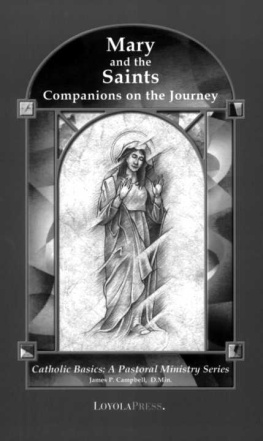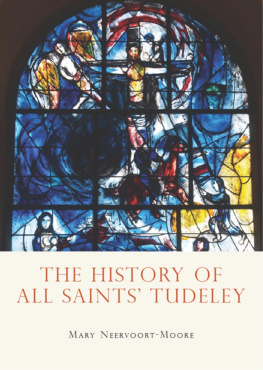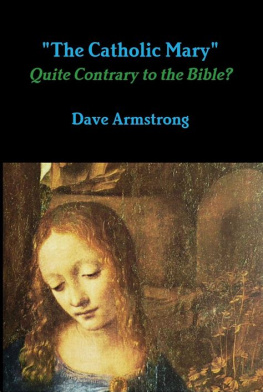James P. Campbell, D. Min.
Thomas P. Walters, Ph.D.







TABLE OF ContE11ts
viii
ix
xi
I
CHAPTER 4: 31
CHAPtER 8: 73
ABOVt tHE SERIES
 atholic Basics: A Pastoral Ministry Series offers an indepth yet accessible understanding of the fundamentals of the Catholic faith for adults, both those preparing for lay ministry and those interested in the topics for their own personal growth. The series helps readers explore the Catholic tradition and apply what they have learned to their lives and ministry situations. Each title offers a reliable introduction to a specific topic and provides a foundational understanding of the concepts.
atholic Basics: A Pastoral Ministry Series offers an indepth yet accessible understanding of the fundamentals of the Catholic faith for adults, both those preparing for lay ministry and those interested in the topics for their own personal growth. The series helps readers explore the Catholic tradition and apply what they have learned to their lives and ministry situations. Each title offers a reliable introduction to a specific topic and provides a foundational understanding of the concepts.
Each book in the series presents a Catholic understanding of its topic as found in Scripture and the teachings of the Church. Each of the authors has paid special attention to the documents of the Second Vatican Council and the Catechism of the Catholic Church, so that further learning can he guided by these core resources.
Chapters conclude with study questions that may be used for small group review or for individual reflection. Additionally, suggestions for further reading offer dependable guides for extra study.
The initiative of the National Conference of Catechetical Leadership led to the development of an earlier version of this series. The indispensable contribution of the series editor, I)r. Thomas Walters, helped ensure that the concepts and ideas presented here are easily accessible to a wide audience.
CEPtIFICAtIOII StAnDAKDS:
nAtIOfiAL RESOVIZCES FOR.
CHVkCH minis-I u
 ach book in this theology series relates to standards for theological competency identified in the resources listed below. 't'hree national church ministry organizations provide standards for certification programs that serve their respective ministries. The standards were developed in collaboration with the United States Catholic Conference Commission on Certification and Accreditation. The fourth resource is the latest document, and it was developed to identify common goals of the three sets of standards.
ach book in this theology series relates to standards for theological competency identified in the resources listed below. 't'hree national church ministry organizations provide standards for certification programs that serve their respective ministries. The standards were developed in collaboration with the United States Catholic Conference Commission on Certification and Accreditation. The fourth resource is the latest document, and it was developed to identify common goals of the three sets of standards.
Competency Based Certification Standards for Pastoral Ministers, Pastoral Associates and Parish Life Coordinators. Chicago: National Association for Lay Ministry, Inc. (NALM), 1994.
These standards address three roles found in pastoral ministry settings in the United States. The standards were the earliest to receive approval from the United States Catholic Conference Commission on Certification and Accreditation. Copies of the standards are available from the National Association for Lay Ministry, 5420 S. Cornell, Chicago, IL 60615-5604.
National Certification Standards for Pro fissional Parish Directors of Religious Education. Washington, DC: National Conference for Catechetical leadership, 1998.
NCCL developed standards to foster appropriate initial education and formation, as well as continuing personal and professional development, of those who serve as Directors of Religious Education (DREs). The standards address various areas of knowledge and abilities needed in the personal, theological, and professional aspects of the ministry. Also included is a code of ethics for professional catechetical leaders. Available from the National Conference of Catechetical Leadership, 3021 Fourth Street NE, Washington, DC 20017-1102.
NFCYM Cornpeteney-Based Standards for the Coordinator of Youth Ministry. Washington, DC: National Federation for Catholic Youth Ministry, 1996.
This document lays out the wide range of knowledge and skills that support ministry with young people as well as the successful leadership and organization of youth ministry wherever it may be situated. The standards are available from the National Federation for Catholic Youth Ministry, 415 Michigan Avenue NE, Suite 40, Washington, DC 20017-1518.
Merkt, Joseph T., ed. Contnion Formation Goals for Ministry. A joint publication of NALM, NFCYM, and NCCL, 2000.
Rev. Joseph Merkt compared the documentation of standards cited by three national organizations serving pastoral, youth, and catechetical ministries. The resulting statement of common goals identifies common ground for those who prepare persons for ministry, as well as for the many people who wear multiple hats. Copies are available from NALM, NCCL, or NFCYM.

 any of the most touching images in the Catholic imagination are those of the Blessed Virgin Mary and of favorite saints. We imagine, for example, the young Mary facing an angel who asks her to make a choice not only for herself but for the world as well or the image of a sorrowful mother at the foot of the cross. We also imagine the saints and their heroic love for God and others: the joy of St. Francis of Assisi preaching to the birds; the sacrifice of St. Maximillian Kolbe giving up his life so another can live; and the steadfast faith of St. Therese of Lisieux, whose "little way" gives modern Christians an accessible means to travel the path to holiness.
any of the most touching images in the Catholic imagination are those of the Blessed Virgin Mary and of favorite saints. We imagine, for example, the young Mary facing an angel who asks her to make a choice not only for herself but for the world as well or the image of a sorrowful mother at the foot of the cross. We also imagine the saints and their heroic love for God and others: the joy of St. Francis of Assisi preaching to the birds; the sacrifice of St. Maximillian Kolbe giving up his life so another can live; and the steadfast faith of St. Therese of Lisieux, whose "little way" gives modern Christians an accessible means to travel the path to holiness.
Pope John Paul I I wrote a post-synodal apostolic exhortation on the (lurch in America, Ecclesia in America (EA). In chapter 1, ""I'he Encounter with the Living Jesus Christ," the Holy Father writes about the important role of devotions to Mary and the saints in American spiritual life (1 1). The life of devotion is intense and takes place in all levels of society. The devotions are carried out in practices such as pilgrimages to shrines of Mary and the saints; the use of sacramentals like water, oil, and candles; and the popular devotion of praying the Rosary. The pope notes that these forms of piety are important ways in which the faithful can learn both genuine spiritual values leading to a life of conversion and practical ways to care for others. When practiced within the context of the life of the Church, they lead to the inculturation of Christian values in the local cultures.
The General Directory for (,atechesis (GDC) also acknowledges that the devotional life is a "vital dimension in Catholic life." Popular devotions to the saints can arouse in the faithful a capacity for self-dedication and even heroism in professing the faith. Through popular devotions, people can arrive at a "keen sensitivity" to the virtues of God: "his fatherly compassion, his providence, his benevolence and loving presence" (#195, as quoted from Evangelii Nuntiandi [EN], On Evangelization in the Modern World, #48). When devotions are prayed in balance,

















 atholic Basics: A Pastoral Ministry Series offers an indepth yet accessible understanding of the fundamentals of the Catholic faith for adults, both those preparing for lay ministry and those interested in the topics for their own personal growth. The series helps readers explore the Catholic tradition and apply what they have learned to their lives and ministry situations. Each title offers a reliable introduction to a specific topic and provides a foundational understanding of the concepts.
atholic Basics: A Pastoral Ministry Series offers an indepth yet accessible understanding of the fundamentals of the Catholic faith for adults, both those preparing for lay ministry and those interested in the topics for their own personal growth. The series helps readers explore the Catholic tradition and apply what they have learned to their lives and ministry situations. Each title offers a reliable introduction to a specific topic and provides a foundational understanding of the concepts. ach book in this theology series relates to standards for theological competency identified in the resources listed below. 't'hree national church ministry organizations provide standards for certification programs that serve their respective ministries. The standards were developed in collaboration with the United States Catholic Conference Commission on Certification and Accreditation. The fourth resource is the latest document, and it was developed to identify common goals of the three sets of standards.
ach book in this theology series relates to standards for theological competency identified in the resources listed below. 't'hree national church ministry organizations provide standards for certification programs that serve their respective ministries. The standards were developed in collaboration with the United States Catholic Conference Commission on Certification and Accreditation. The fourth resource is the latest document, and it was developed to identify common goals of the three sets of standards. any of the most touching images in the Catholic imagination are those of the Blessed Virgin Mary and of favorite saints. We imagine, for example, the young Mary facing an angel who asks her to make a choice not only for herself but for the world as well or the image of a sorrowful mother at the foot of the cross. We also imagine the saints and their heroic love for God and others: the joy of St. Francis of Assisi preaching to the birds; the sacrifice of St. Maximillian Kolbe giving up his life so another can live; and the steadfast faith of St. Therese of Lisieux, whose "little way" gives modern Christians an accessible means to travel the path to holiness.
any of the most touching images in the Catholic imagination are those of the Blessed Virgin Mary and of favorite saints. We imagine, for example, the young Mary facing an angel who asks her to make a choice not only for herself but for the world as well or the image of a sorrowful mother at the foot of the cross. We also imagine the saints and their heroic love for God and others: the joy of St. Francis of Assisi preaching to the birds; the sacrifice of St. Maximillian Kolbe giving up his life so another can live; and the steadfast faith of St. Therese of Lisieux, whose "little way" gives modern Christians an accessible means to travel the path to holiness.